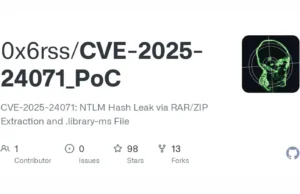This plugin for PowerToys Run allows you to quickly search for an IP address, domain name, hash, or any other data point in a list of Cyber Security tools.
It’s perfect for security analysts, penetration testers, or anyone else who needs to quickly look up information when investigating artifacts or alerts.
Installation
To install the plugin:
- Navigate to your Powertoys Run Plugin folder
- For a machine-wide install of PowerToys:
C:\Program Files\PowerToys\modules\launcher\Plugins - For a per-user install of PowerToys:
C:\Users\<yourusername>\AppData\Local\PowerToys\modules\launcher\Plugins
- For a machine-wide install of PowerToys:
- Create a new folder calledQuickLookup.
- Extract the contents of the zip file into the folder you just created
- Restart PowerToys and the plugin should be loaded under the Run tool settings and work when promted with
ql

Usage
To use the plugin, simply open PowerToys Run by pressing Alt+Space and type the activation command ql followed by the tool category and the data you want to lookup.

The plugin will open the data searched in a new tab in your default browser for each tool registered with that category.

Default Tools
This plugin currently comes by default with the following tools:
- Shodan: IP Lookup
- GreyNoise: IP Lookup
- Spur: IP Lookup
- VirusTotal: IP, Domain and Hash Lookup
- Censys: IP and Domain Lookup
- CriminalIP: IP and Domain Lookup
- Whois: Whois Lookup
- EasyCounter: Whois Lookup
- Whoisology: Whois Lookup
Configuration
NOTE: Prior to version 1.3.0, the default configuration file was used.
The plugin will now automatically convert the tools.conf list to tools.json if it does not already exist in JSON form and will then default to using that instead.
The legacy config file will remain, but will not be used and will not be included in future builds starting from v1.3.0
By default, the plugin will use the preconfigured tools listed above. You can modify these settings by editing the tools.json file in the plugin folder.
The format for the configuration file follows the below standard:
{
"Name": "VirusTotal",
"URL": "https://www.virustotal.com/gui/search/{0}",
"Categories": [ "ip", "domain", "hash"],
"Enabled": true
}In the URL, {0} will be replace with the search input. As such, only sites that work based on URL data (GET Requests) are supported for now.
For example, https://www.virustotal.com/gui/search/{0} would become https://www.virustotal.com/gui/search/1.1.1.1












%20Works.png)


.webp)

